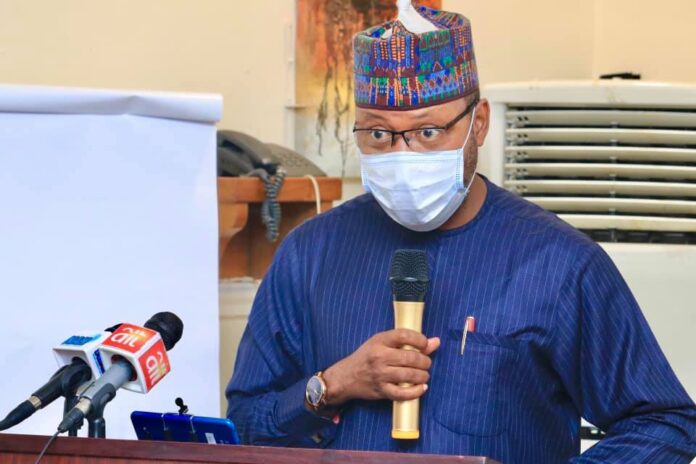Minister of State for Science, Technology and Innovation, Mohammed Abdullahi, says the ministry is putting together the first ever National Leather and Leather Products Policy in Nigeria and its implementation Plan.
Abdullahi disclosed this at the graduation ceremony of 165 trainees on footwear manufacturing and leather goods on Thursday in Abuja.
He said the leather products policy implementation plan would reverse the ugly trend of huge capital flight suffered in market share of Nigerian manufactures.
“The market share of Nigerian manufactures in recent times has increased by 10 per cent, about N65 billion.
“Leather and leather products transaction were estimated to have increased in excess of N450 billion for footwear and N200 billion for other finished leather products.
“The export value in the average was 189 billion naira to N252 billion, mainly leather,” Abdullahi said.
The minister noted that the sad realty about these developments was that 90 per cent of the benefits went to foreign countries while only 10 per cent goes into domestic accounts.
He said that was why the ministry, through the Nigerian Institute of Leather and Science Technology (NILEST) was making frantic efforts to reverse this ugly trend through the leather products policy implementation plan.
According to him, tye leather industry forms one of the vibrant sectors in national economy development, contributing enormously to Nigeria’s GDP.
He said the industry ranked highest among non-oil foreign income earners of the country.
“This industry through the deployment of STI has developed appropriate skills to implement suitable and sustainable end to end solutions for wealth creation and employment generation across the leather value chain(LVC),” he said.
Prof. Mohammed Yakubu, Director General of NILEST, noted that the graduation ceremony took place simultaneously in other four locations in Nigeria to graduate 165 young men and women in the training programme.
He said by their training, NILEST had certified the graduates as specialists Artisans in the art of leather craft.
“This is the first time trainees were simultaneously camped together in different zones for effective coaching and mentoring.
“This training is a boost to unlocking the enormous potentials existing in leather sector for benefit of this country,” Yakubu said.
Three of the graduates, Halimat Mohammed, Salawudeen Adeiza and Idris Ismail,from Kaduna State and Kogi spoke about the benefits of the training and setting up their businesses and also train others.
Halimat said she hoped to acquire further training to perfect her skill before setting up her business as an entrepreneur.




